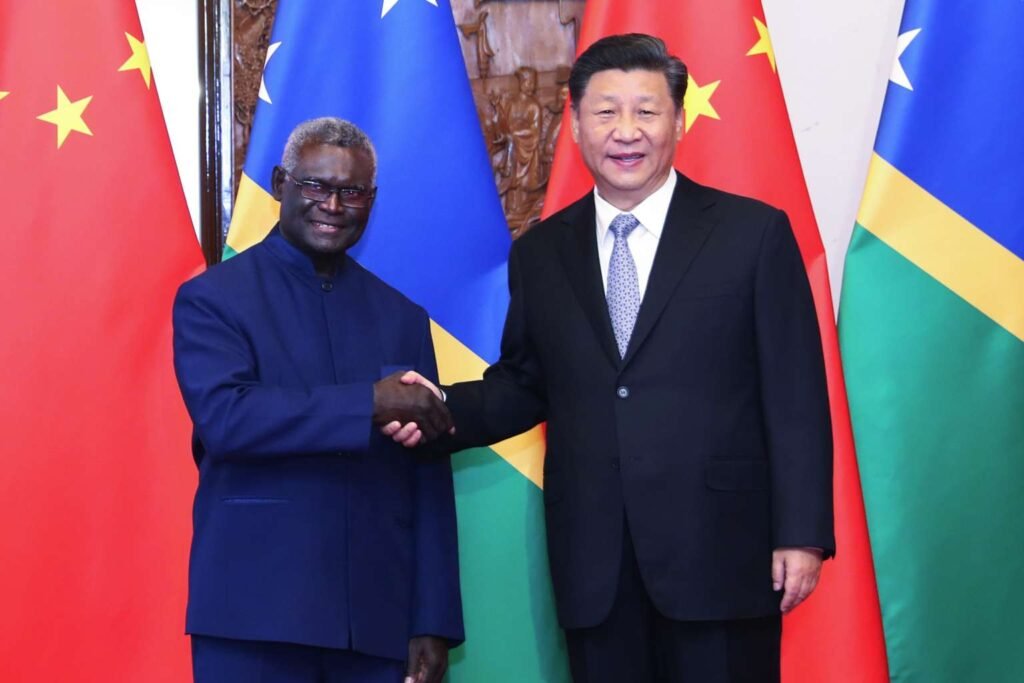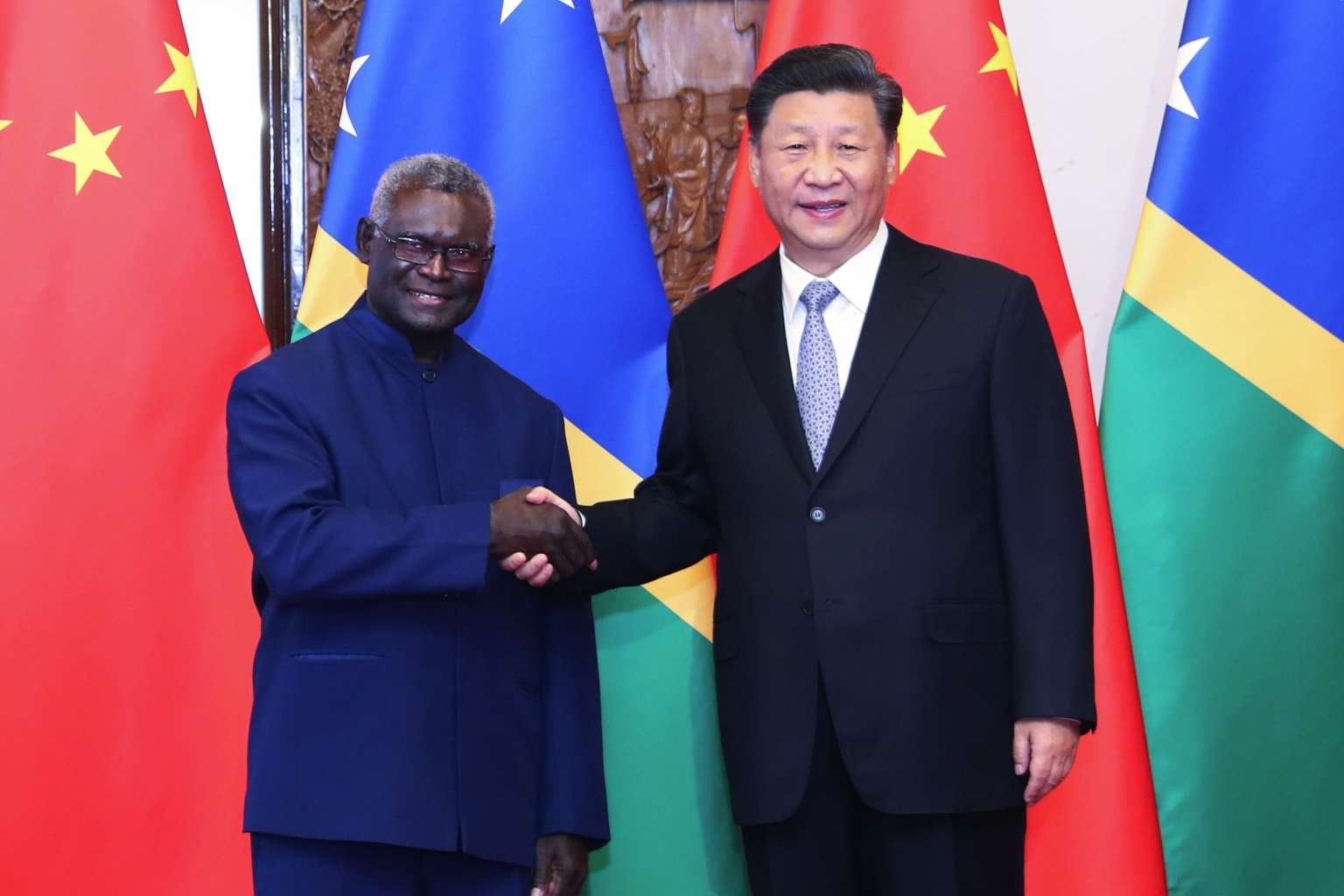The Solomon Islands located in the Pacific Ocean, have become a battleground between China, Australia and the West. The Solomon Islands’ strategic location, natural resources, and diplomatic significance make them a valuable prize in the geopolitical competition.
Control over these Islands offers strategic advantages to different nations in terms of maritime routes, access to resources, and geopolitical leverage in the Pacific region. A geopolitical struggle for influence and control over these Islands is followed by competing investments, aid programs, and diplomatic efforts.

China in Solomon Islands
China has aggressively expanded its presence in the Solomon Islands through investments in infrastructure projects, aid programs, and diplomatic initiatives. They have been actively challenging the traditional influence of Western powers like Australia and the United States. Meanwhile, Australia and the United States have ramped up their efforts to maintain their influence and counter China’s growing presence in the region.
The shift in diplomatic allegiance by the Solomon Islands to Beijing in 2019 marked a significant turning point. It opened the door to increased Chinese investment and influence in the region.
The geopolitical implications of China’s growing influence in the Solomon Islands are evident. A controversial security deal has been signed between the Solomon Islands and China, granting the Chinese Communist Party significant control over security and investments in the country. Critics, including former government officials and activists, have raised concerns of potential harm to sovereignty and exploitation by China.
Australia’s Retaliation
Australia has made significant investments in the Solomon Islands over the past 15 years, totaling more than $3 billion in aid. However, despite Australia’s contributions, China’s presence looms large, with flashy investments and infrastructure projects capturing the attention of Solomon Islanders. Chinese aid, including funding for newspapers and infrastructure projects like the construction of a new stadium, has garnered significant support and appreciation from some sectors of the population.
Australia and the United States have responded to China’s growing influence with their own initiatives, such as deployment of a US hospital ship and medical assistance missions aimed at bolstering ties and countering China’s influence.
Pushback against China
Local communities in Solomon islands, particularly those affected by Chinese investments like the controversial gold mine, express frustration. Broken promises, environmental damage, and exploitation are a few reasons for resentment against china. Activists and former government officials emphasize the need for caution and vigilance in dealing with China’s growing presence in the Solomon Islands.
Read More:- Arresting El Chapo: Kingpin of Drug World!
In conclusion, the battle for control of the Solomon Islands has led to geopolitical tensions between China and the West. As China expands its influence in the Pacific, traditional Western powers like Australia and the United States are stepping up their efforts to maintain their influence. The future of the Solomon Islands hangs in the balance, caught in the crossfire of this geopolitical struggle for dominance.
Do you like Anime? Go to Pop Media Pulse
